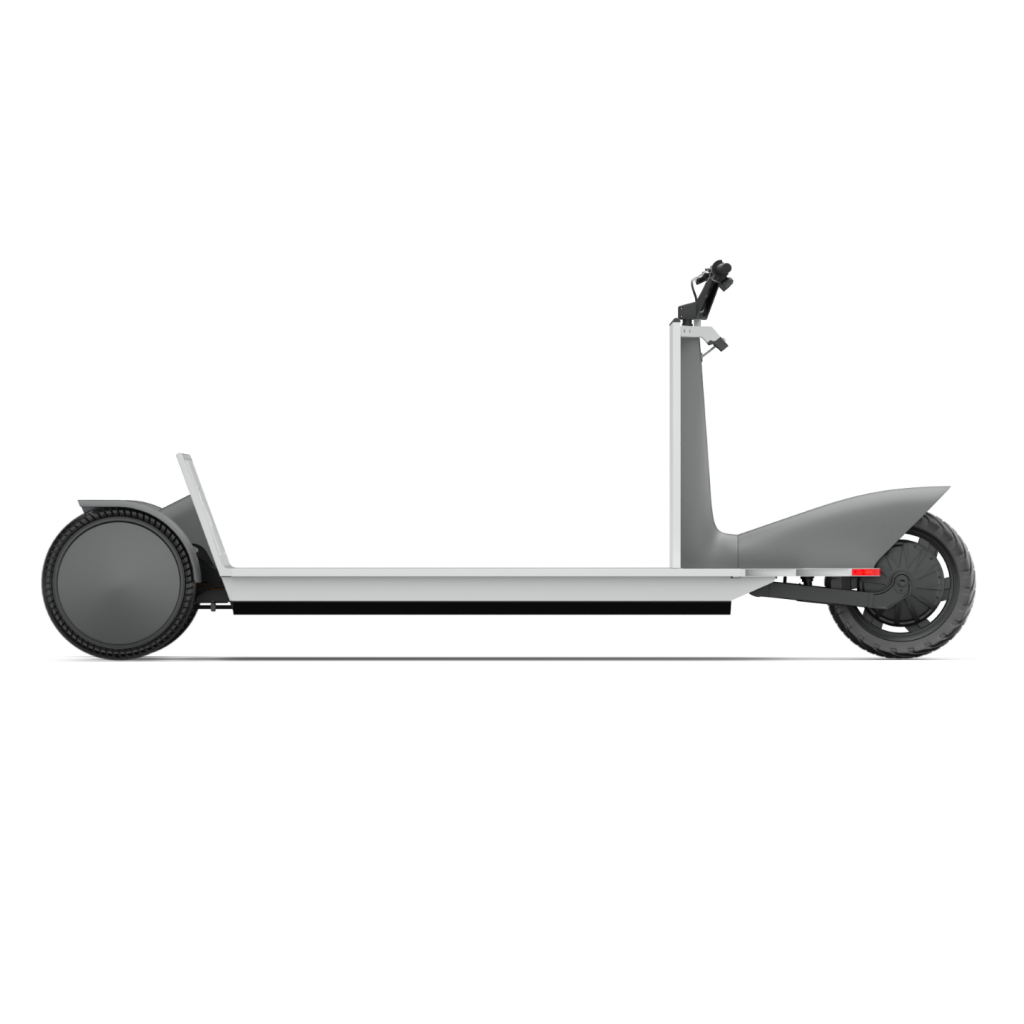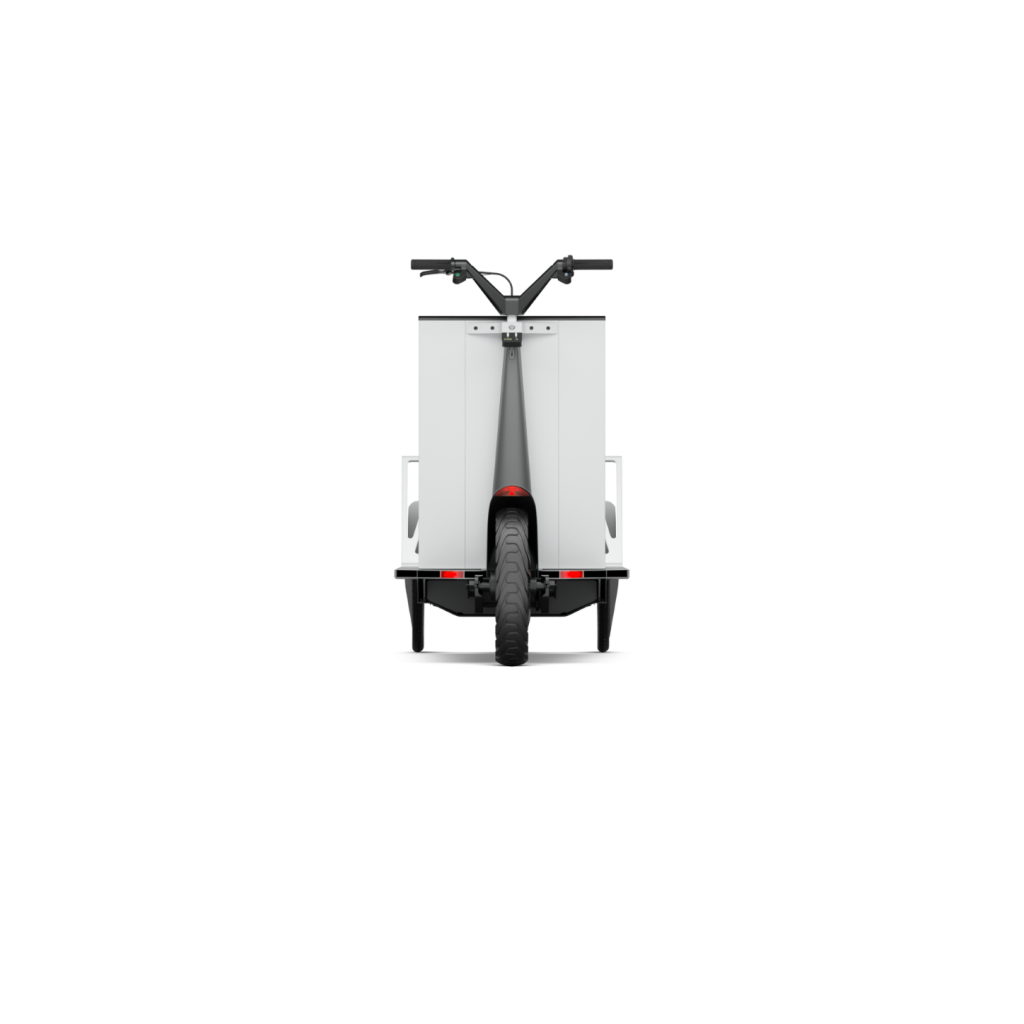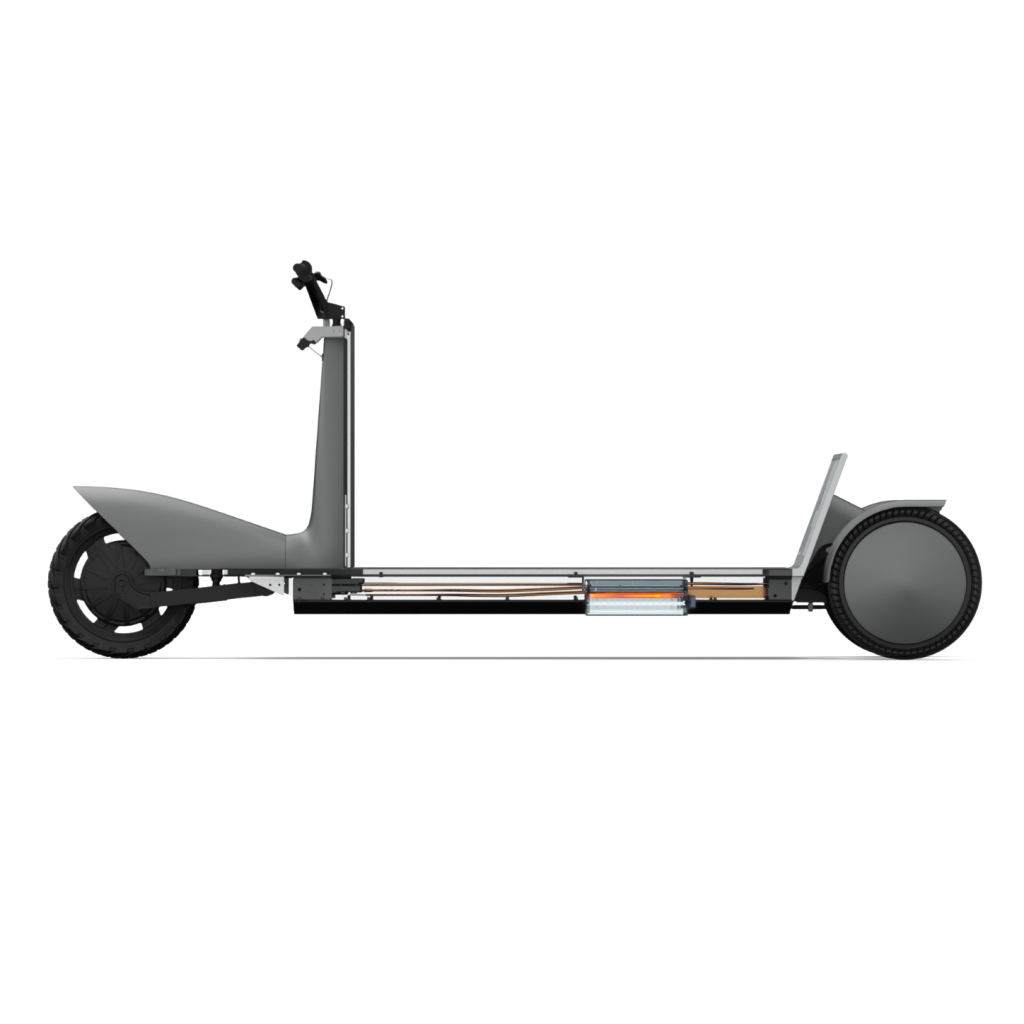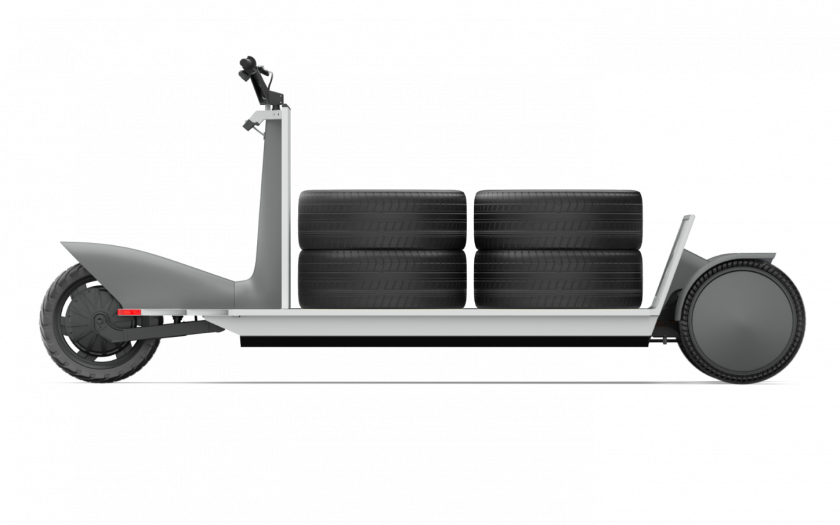ONE OF THE CHALLENGES in transport is that the “last mile” of a delivery often costs as much as the rest of the delivery combined. It’s a problem that is occupying some clever minds.
Polestar is part of a consortium of leaders in design, mobility and sustainable materials that have collaborated to rethink last-mile delivery and how goods are transported in cities. The project, named Re:Move, is a fast-tracked reaction to surging online shopping and home delivery demands and the clear requirement to find more sustainable mobility solutions. The study strives to become a catalyst for change and the first working prototype has been revealed at IAA in Munich.
Revealed earlier in 2021, the project was born out of Wallpaper magazine’s Re:Made series which engaged celebrated industrial designer Konstantin Grcic. But rather than the design study being the end of the project, it become the beginning, inspired by the shared convictions of a wider set of designers, mobility and sustainable material experts, hailing from Polestar, CAKE and Hydro.

“Good design is inherently sustainable design. Everyone involved in this distinctive project shares the belief that purity can be a driver for sustainability,” says Konstantin Grcic, Re:Move designer. “Over the last year we have worked together, engineers and designers, to create a versatile solution that has never lost sight of its purpose. Ultimately, its design is all the better for it.”
The multi-functional electric transporter is only 750 mm wide – perfectly suited to bicycle lanes – and is capable of carrying loads of up to 180 kg. The low-carbon aluminium chassis has an electric tilt mechanism, allowing the vehicle to ‘lean-in’ to turns, improving stability and manoeuvrability, and reducing its turning circle to less than seven metres. Disc brakes instil further dynamic confidence in the EV while a damped rear swing arm is designed for driver comfort and to reduce fatigue. Always-on lighting improves forward visibility for the driver, while brake lights, optional indicators and a horn help to ensure the vehicle is visible to pedestrians and traffic.

“The passion and expertise our partners have brought to this project shows the power of great design,” says Thomas Ingenlath, Polestar CEO. “Electrifying vehicles is the start point, not the end game. Our engineers have proven that this kind of open collaboration will accelerate innovation and the shift to truly sustainable mobility.”
With a limited maximum speed of 25 km/h (in line with e-bikes) and a 2.2 kWh battery as standard, Re:Move is equally fit for replacing delivery vans to radically improve city traffic flow or bringing cargo transportation to rural areas lacking developed infrastructure. The frame uses unique composite covers, a natural replacement for plastics and flax-based composites.
“With the obligation to inspire towards zero emissions, Re:Move defines a new vehicle category. We’re delighted to contribute with our high-capacity battery, hub motor and smart technology,” says Stefan Ytterborn, CAKE Founder and CEO.

Partners involved in the project worked together during a time when the global pandemic meant there was no opportunity for physical meetings. Nor, it was proven, was there a need for them. The use of online tools ensured that the program continued on track with regular meetings and completely virtual collaboration.
Bjørn Kjetil Mauritzen, Head of Sustainability in Hydro, comments: “To stay within the 1.5-degree Paris Agreement target, we need fewer fossil-fuel vehicles on the streets, but we should also be striving to reduce emissions and harmful particulates in the air. Re:Move is not only a low maintenance vehicle with an electric powertrain, but it’s also fully recyclable and uses low carbon aluminium that is made with renewable energy.”
Re:Move aims to spark new thinking around urban infrastructure and mobility. It also goes to prove that working virtually need not hamper creativity, and that collaboration will unlock a more sustainable future.
